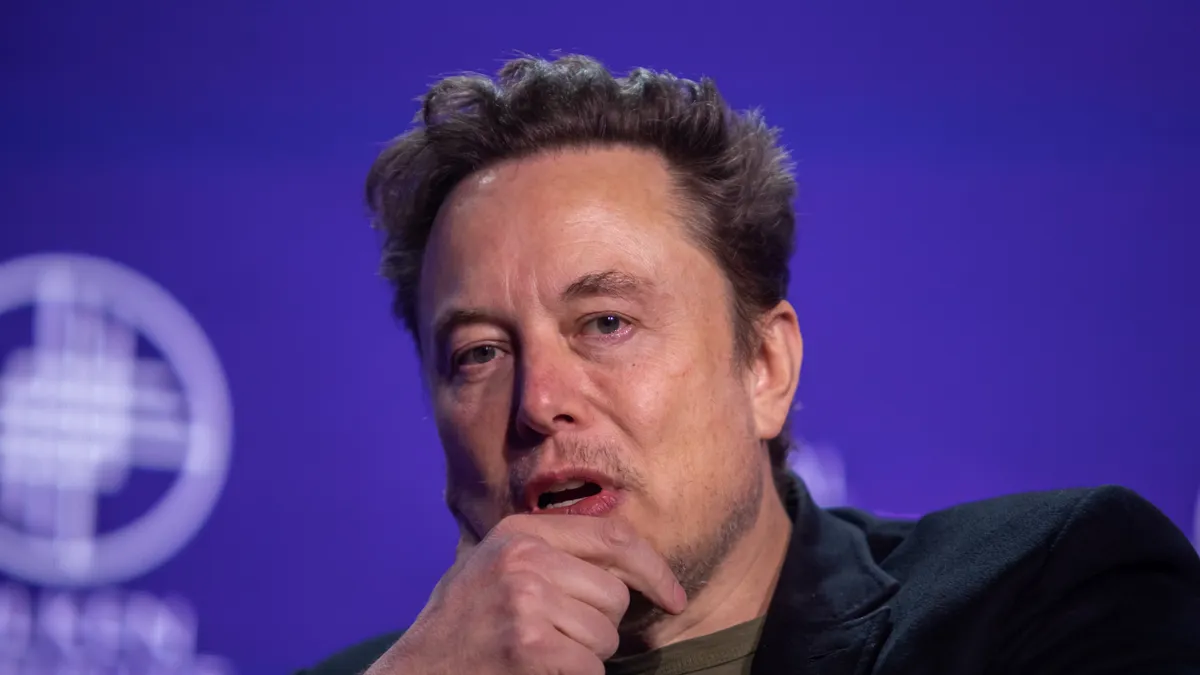Dive Brief:
- The Global Alliance for Responsible Media (GARM), a not-for-profit division of the World Federation of Advertisers (WFA) focused on implementing digital brand safety standards, has shut down, according to a WFA press release.
- The sudden closure follows an antitrust lawsuit filed against the group by Elon Musk’s X earlier this week. The suit alleges GARM used coercive market power to enforce a large advertiser boycott of X, formerly Twitter, and that the platform hasn’t recovered.
- In its announcement, GARM said that the allegations against it had become a distraction and “significantly drained its resources and finances.” The shuttering of GARM is a win for Musk and X but a potential blow for brand safety advocates.
Dive Insight:
GARM, an influential organization that established brand safety guidelines and tools for advertisers looking to avoid harmful online content, is dead. The group was launched by the WFA, a trade body representing advertisers, in 2019, following the Christchurch, New Zealand, Mosque shootings that were streamed live on Facebook, a moment that was perceived as a massive failure in social-media oversight. Members included top-spending marketers like Unilever, Mars, Orsted and CVS Health, which are named in the X lawsuit alongside GARM and the WFA.
X’s antitrust allegations against GARM raised a few eyebrows among industry watchers — and plenty of mockery on the platform formerly known as Twitter — but appear to have delivered a fatal blow to the not-for-profit contending with what would likely have been a costly legal battle.
The WFA plans to fight X’s allegations in court, according to an email to members from CEO Stephan Loerke reviewed by Business Insider, which first broke the news of GARM’s shuttering.
GARM claimed to reduce the number of ads running around harmful content, a designation that includes terrorism videos and child pornography, from 6.1% in 2020 to 1.7% in 2023. Offerings from the group included a Brand Safety Floor and Adjacency Standards Framework.
X alleges that GARM members colluded in a massive boycott of its platform following Musk’s takeover two years ago. The lawsuit claims X’s business is still contending with the fallout, even after adopting brand safety standards in line with competitors. To assuage advertiser concerns, X rejoined GARM at the beginning of July.
GARM has been under sharper scrutiny following a report from the House Judiciary Committee chaired by Rep. Jim Jordan (R-Ohio) published last month that was sharply critical of the initiative, particularly in relation to its treatment of conservative publishers. The X lawsuit references the House Judiciary Committee report.
No small group should be able to monopolize what gets monetized. This is an important acknowledgement and a necessary step in the right direction. I am hopeful that it means ecosystem-wide reform is coming. https://t.co/BlHqHqZEyp
— Linda Yaccarino (@lindayaX) August 8, 2024
The GARM closure is a flash point in Musk’s contentious relationship with the advertising community. The mercurial executive, who also runs SpaceX and Tesla, has previously told off advertisers with four-letter words but also mounted several charm offensives to try to win back spending on X, a site that still relies heavily on ad revenue. While X leaders, including CEO Linda Yaccarino, view GARM’s shuttering as a victory, it’s not clear if the move will help it win back jumpy brands.
X has previously pursued legal action against nonprofits critical of how it handles brand safety and hate speech. The company sued the Center for Countering Digital Hate last year in a case that was dismissed and is currently entangled in a lawsuit with Media Matters.








